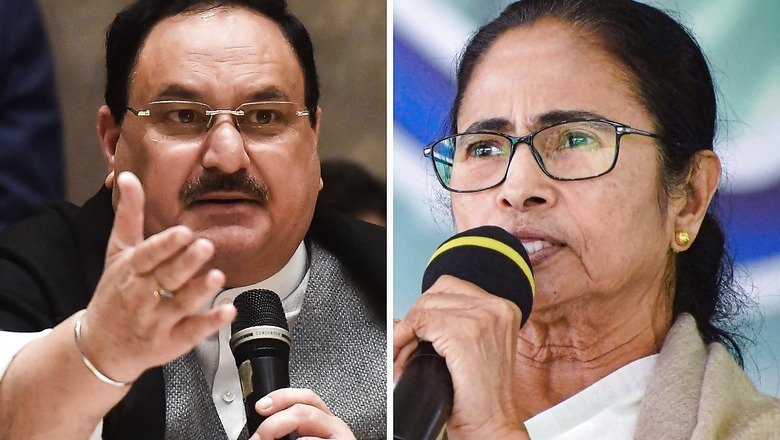
views
Bengal Chief Minister Mamata Banerjee last week refused to send the state’s chief secretary and police chief to New Delhi deterring from compliance with Union Home Ministry’s summons after the attack on Bharatiya Janata Party chief JP Nadda’s convoy in West Bengal’s Diamond Harbour on December 10.
In the same week, Nadda’s convoy was pelted with stones at Sirakol in Diamond Harbour area of South 24 Parganas district, where he had gone to address a rally.
The MHA had summoned Chief Secretary Alapan Bandopadhyay and DGP Virendra last Friday asking them to present themselves on December 14 for an explanation on the law and order situation in the state, following Governor Jagdeep Dhankhar’s report on the attack on Nadda’s convoy. Bandopadhyay however, wrote to Union Home Secretary Ajay Bhalla, saying he has been directed to request to “dispense with the presence of the state officials” in the meeting convened on December 14.
The officers the Centre has sought on central deputation are Rajeev Mishra (Additional Director General, South Bengal), Praveen Tripathi (Deputy Inspector General, Presidency Range) and Bholanath Pandey (SP, Diamond Harbour).
For IAS, IPS and Indian Forest Service, officers of the state cadre are allotted by the Centre. From time to time, a certain number of officers are sent on central deputation. The Home Ministry is the authority in control of IPS cadre and the Department of Personnel and Training for the IAS cadre.
Rule 7 of the All India Services (Discipline and Appeal) Rules, 1969, states that the “Authority to institute proceedings and to impose penalty” will be the state government if the officer is “serving in connection with the affairs of a State, or is deputed for service under any company, association or body of individuals, whether incorporated or not, which is wholly or substantially owned or controlled by the Government of a State, or in a local authority set up by an Act of the Legislature of that State.”
For any action to be taken on an officer of the All India Services (IAS, IPS, IFS), the state and the Centre both need to agree.
Rule 6(1) of the Indian Police Service (Cadre) Rules, 1954, talks about deputation: “in case of any disagreement, the matter shall be decided by the central Government and the state government or state governments concerned shall give effect to the decision of the Central Government.”
Under the Home Ministry’s deputation policy for IPS officers, “if an officer on offer is selected for a Central posting and does not report either on his own or at the instance of the State Government, he would be debarred for consideration for a post under the Government of India for a period of five years. Officers, who have already been debarred, should not be offered before the debarment period is over.”
Being debarred from central deputation, however, hardly bothers an official if they prefer to work in their state.
Read all the Latest News, Breaking News and Coronavirus News here


















Comments
0 comment